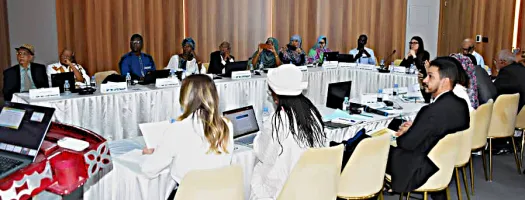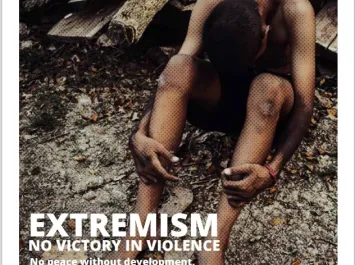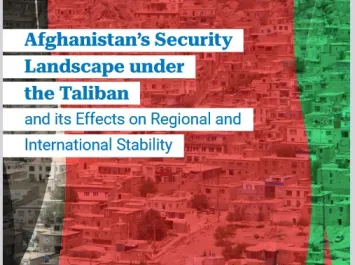On 7 October 2025, UNICRI, with the support of the Federal Foreign Office of Germany, convened a technical workshop in Nouakchott to consult and validate priority regions most affected by the intersecting risks of climate change and violent extremism in Mauritania.
The event was organised as part of the second phase of the project Strengthening National and Regional Approaches to Address Climate-Related Security Risks and Violent Extremism. Building on the achievements of the first phase – which led to the development and dissemination of a methodological tool for analysing these risks – the second phase of the project is now focusing on operationalising the tool in Mauritania.
From analysis to prioritisation
Earlier this year, UNICRI conducted an in-depth desk review of climate and security data across all wilayas (administrative regions) of Mauritania. This analysis integrated gender, age, and socio-economic factors to provide a nuanced understanding of vulnerabilities and exposures. Based on these findings, three wilayas were identified as priority areas for further attention, given their heightened exposure to both environmental pressures and risks of violent extremism. The technical workshop offered a platform to present these results, engage in participatory consultation, and validate the selection of priority areas with national stakeholders.
An inclusive space for dialogue
The workshop gathered a diverse group of actors: representatives of national institutions, women’s and youth groups, civil society, research institutions, and UN agencies. Together, participants engaged in knowledge exchange and collective reflection on how to strengthen prevention and resilience in Mauritania’s most vulnerable regions. By bringing multiple perspectives into the validation process, the workshop ensured that national ownership, inclusivity, and local realities remain central to the implementation of the methodology.
Looking ahead
The workshop marked a critical step in translating analytical findings into action. Building on this milestone, UNICRI will conduct participatory field research in the identified regions of Hodh Ech Chargui, Hordh El Garbi, and Guidimaka to collect in-depth data at the community level through targeted interviews, surveys, and focus group discussions. This research will be gender-sensitive and inclusive, designed to capture local perceptions, lived experiences, and the nuanced dynamics of climate change risks and violent extremism.
UNICRI expresses its gratitude to the Federal Foreign Office of Germany for its continued support and to all partners and participants for their invaluable contributions. Together, these efforts not only strengthen national capacities to analyse and respond to the dual challenges of climate vulnerability and violent extremism, but also contribute to building resilient, inclusive, and peaceful communities in Mauritania and across the Sahel.



